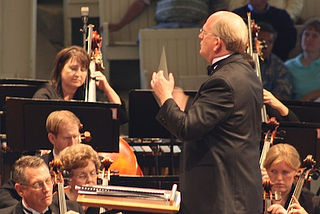A Quote by Edward Sapir
It would, of course, be hopeless to attempt to crowd into an international language all those local overtones of meaning which are so dear to the heart of the nationalist.
Related Quotes
Any attempt to speak without speaking any particular language is not more hopeless than the attempt to have a religion that shall be no religion in particular.... Every living and healthy religion has a marked idiosyncrasy. Its power consists in its special and surprising message and the bias which that revelation gives to life.
The administration of private justice between the citizens of the same state, the supervision of agriculture and of other concerns of a similar nature, all those things in short which are proper to be provided for by local legislation, can never be desirable cares of a general jurisdiction . . . the attempt to exercise these powers would be as troublesome as it would be nugatory; and the possession of them, for that reason, would contribute nothing to the dignity, to the importance, or to the splendour of the national government.
For those in whom a local mythology still works, there is an experience both of accord with the social order, and of harmony with the universe. For those, however, in whom the authorized signs no longer work-or, if working, produce deviant effects-there follows inevitably a sense both of dissociation from the local social nexus and of quest, within and without, for life, which the brain will take to be for 'meaning'.
Why is it so much easier to talk to a stranger? why do we feel we need to disconnect in order to connect? If I wrote "Dear Sofia" or "Dear Boomer" or "Dear Lily's Great-Aunt" at the top of this postcard, wouldn't that change the words that followed? Of course it would. But the question is: When I wrote "Dear Lily," was that just a version of "Dear Myself"? I know it was more than that. But it was also less than that, too
One of the reasons I love language is that concerning semiotics, language is an arbitrary sign system, which means the signs within it are free-floating, but we put them in a certain order to get them to have meaning for us. If we left them alone, they'd be like water, like the ocean. It would be just this vast field of free-floating matter or signs, so in this way, I think language and water have much in common. It's only us bringing grammar and syntax and diction and the human need for meaning that orders language, hierarchizes it.
People are mostly sane enough, of course, in the affairs of common life: the getting of food, shelter, and so on. But the moment they attempt any depth or generality of thought, they go mad almost infallibly. The vast majority, of course, adopt the local religious madness, as naturally as they adopt the local dress. But the more powerful minds will, equally infallibly, fall into the worship of some intelligent and dangerous lunatic, such as Plato, or Augustine, or Comte, or Hegel, or Marx.
The true meaning of an artist/actor is opening my heart to the audience and at the same time opening their heart. Through sharing my pain I can possibly heal your pain, there is no other feeling like it, money doesn't compare. This is the true meaning of Art. I will attempt to do it till my dying day.
Though I do not believe in the order of things, still the sticky little leaves that come out in the spring are dear to me, the blue sky is dear to me, some people are dear to me, whom one loves sometimes, would you believe it, without even knowing why; some human deeds are dear to me, which one has perhaps long ceased believing in, but still honors with one's heart, out of old habit..." --Ivan Karamazov
The full meaning of a language is never translatable into another. We may speak several languages but one of them always remains the one in which we live. In order completely to assimilate a language it would be necessary to make the world which it expresses one's own and one never does belong to two worlds at once.
The language of the heart--the language which "comes from the heart" and "goes to the heart"--is always simple, always graceful, and always full of power, but no art of rhetoric can teach it. It is at once the easiest and most difficult language--difficult, since it needs a heart to speak it; easy, because its periods though rounded and full of harmony, are still unstudied.




































